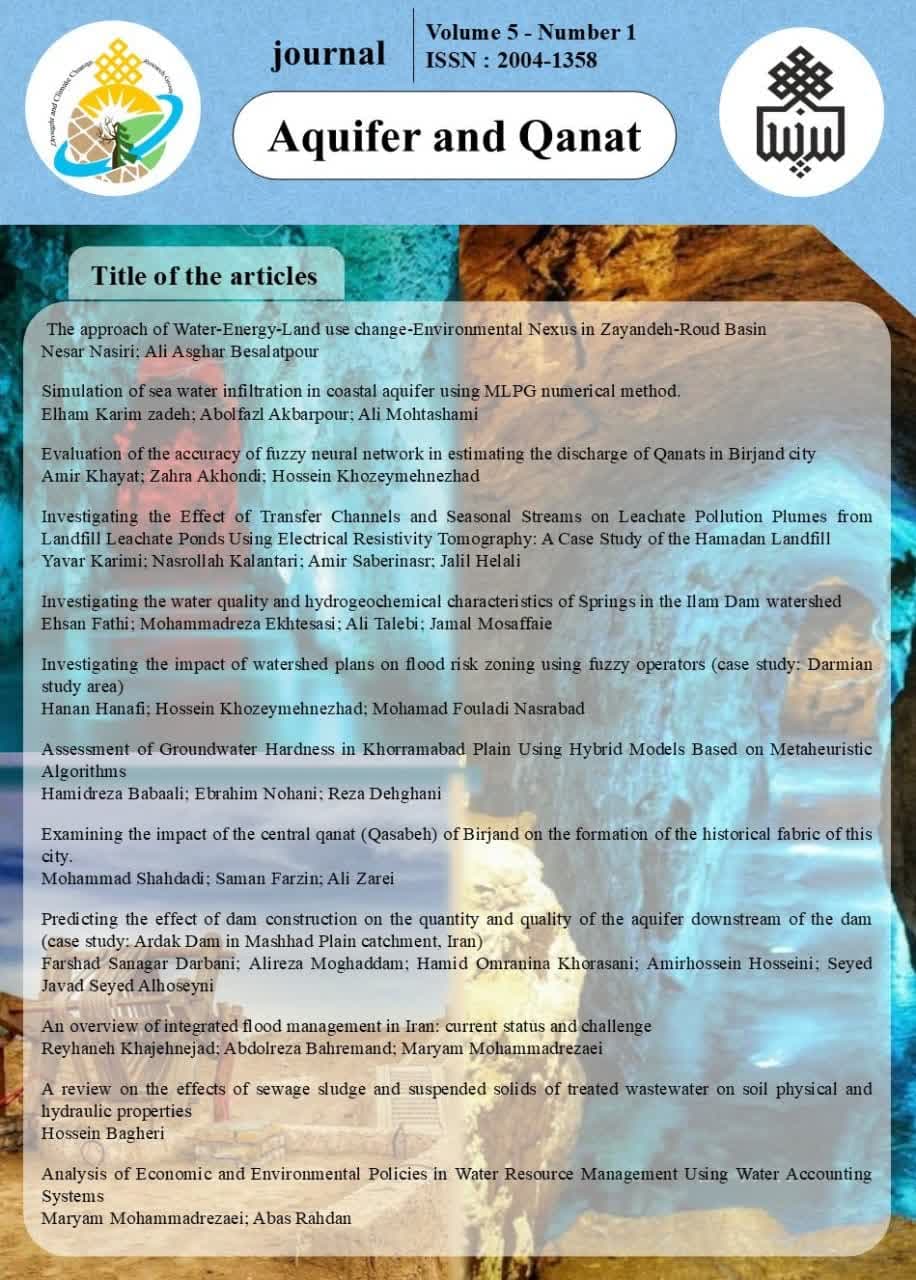Document Type : Review Paper
Author
PhD graduate of irrigation and drainage, Bu-Ali Sina University, Hamadan, Iran.
Abstract
The lack of water resources in arid and semi-arid climates has caused treated wastewater to be used as a leading option for agricultural stability and crop production in land irrigation. In addition, the low quality of agricultural land in these climates also requires the use of fertilizers and amendments, and in this regard, sewage sludge can be an easily accessible option. Despite meeting the water and fertilizer needs of the land using the two mentioned options, it is necessary to study their consequences on the soil bed of the land for sustainable agriculture. Therefore, the aim of this study is to review the effects of suspended particles of treated wastewater and and sewage sludge on physical and hydraulic properties of soil such as bulk density, porosity, hydraulic conductivity, infiltration rate, soil structure, soil grain stability and soil water retention curve. The studies conducted in this field showed that irrigation with treated wastewater increased the bulk density, reduced porosity and hydraulic conductivity, destroyed the soil structure and soil grains, while improved the moisture condition of the soil. The effects of sewage sludge on soil properties are indicated that this substance can improve the soil structure, increase the diameter of soil aggregates and accelerate their formation process, thereby creating the conditions of reducing bulk density and increasing porosity, hydraulic conductivity and permeability, and increase available moisture in the soil.
Keywords
Main Subjects

